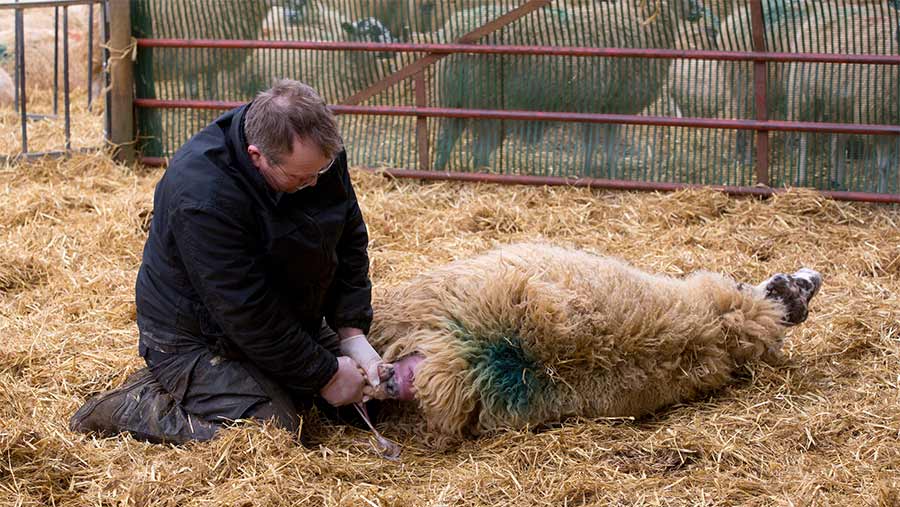Steps to improve labour efficiency laid out by sheep adviser
 © Tim Scrivener
© Tim Scrivener Sheep farmers have been challenged to limit their annual labour input to two hours a ewe by advisers who have noted huge variation in farm labour efficiency.
This would mean a labour cost of £30 a ewe on a 1,000 ewe flock employing a full-time shepherd for £30,000/year with adequate time off.
See also: How to design the best sheep handling system
Analysis by consultants at Scotland’s Rural College (SRUC) showed that time spent working sheep ranged from 1.8 hours to 7.3 hours a ewe each year, based on data from less-favoured area farms in England between 2004 and 2008.
The most time-efficient farms averaged 850 ewes, while the least efficient had 250.
According to SRUC sheep and grassland consultant Daniel Stout, economies of scale were evident.
“It doesn’t take much more time to feed, check or handle 500 ewes compared with 400,” he said.
“What’s key is that farms not stocked at their optimum capacity should consider this as part of their future planning.”
Wasted time
Mr Stout also underlined findings from an academic study that attached GoPro cameras to shepherds to quantify how much time was wasted.
The study followed three shepherds on April/May outdoor lambing flocks of more than 850 ewes. It found shepherds spent 7 hours 52min/day in lambing fields.
Of this time:
- 23% was spent driving
- 6% was spent opening and closing gates
- 5% was walking
- 17% was on ewe tasks
- 27% was on lambs
- A total of 58% of time was spent on driving, walking or gates.
Steps for efficiency
Daniel Stout and SRUC sheep geneticist Dr Joanne Conington listed some options to make sheep work more efficient:
- Field layout Lambing paddocks can be chosen to reduce travel distance
- Gate placement Gate placement can streamline routes
- Gate alternatives Ramps over walls or permanent or temporary cattle grids
- Genetics Sheep can be bred for maternal ability, worm resistance and lamb vigour
- Pen cards Boards highlighting problems in the lambing shed can cut wasted time
- Shed layout Penning triplets and orphans near singles for fostering can save time. Ensure clean equipment (bottles/syringes/tube feeders) is where it is needed.
- Health Handling can be minimised by proactive and preventative disease control.
